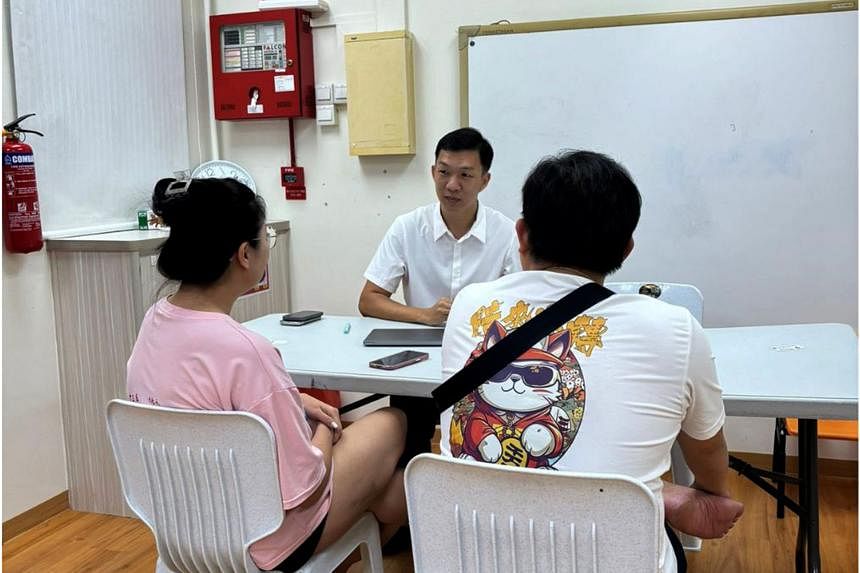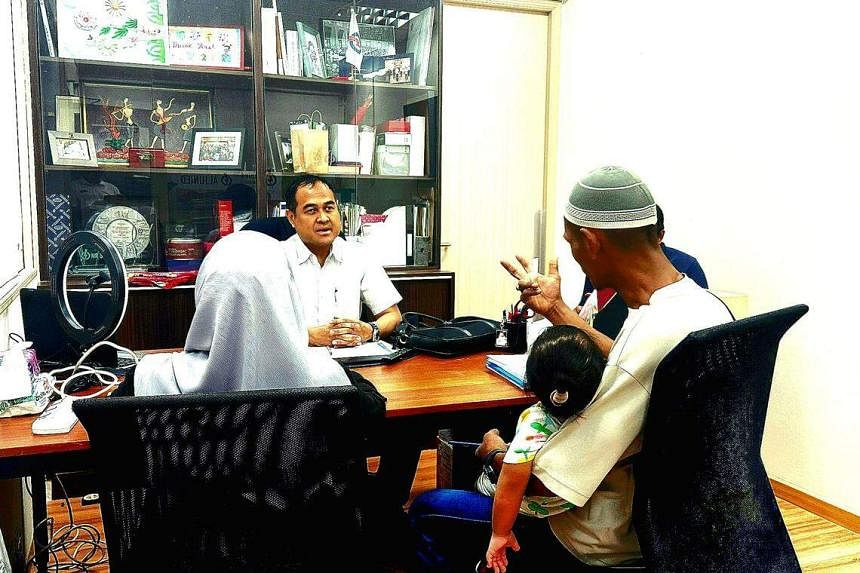- Joined
- Oct 30, 2014
- Messages
- 36,768
- Points
- 113

SINGAPORE – Activists from the ruling People’s Action Party (PAP) are stepping up meet-the-resident engagements in wards held by the opposition Workers’ Party (WP), following a hiatus after the 2020 General Election.
On April 4, PAP’s point man for Hougang Jackson Lam announced on Facebook that he had started his regular chit-chat sessions with residents every first and third Wednesday of each month from 7.30pm at a block in Hougang Avenue 5.
He took over as chairman of PAP’s Hougang branch in October 2023 from Mr Lee Hong Chuang. The latter contested in the WP stronghold in the 2015 and 2020 general elections.
PAP activists in Aljunied GRC have also resumed similar engagements with residents, which were suspended after the last general election.
Grassroots adviser Shamsul Kamar said in a Facebook post on March 28 that he is back to meeting residents in Kaki Bukit. Fellow Aljunied grassroots adviser Victor Lye has also been meeting residents through “weekly coffee shop sessions” in Bedok Reservoir and Hougang.
Both Mr Shamsul and Mr Lye were PAP candidates for Aljunied GRC in the 2015 and 2020 polls.
When contacted by The Straits Times on April 4, Mr Shamsul said he has not resumed his Meet-the-People sessions (MPS) in Aljunied.
“On my part, however, I do meet residents from time to time to assist with requests for advice and applying for financial assistance,” he said. “These are not the regular weekly MPS.”
In response to queries, the PAP said: “Our PAP branch chairs have constantly been looking at different ways to connect with the residents across Singapore.”
ST also contacted Mr Lam and Mr Lye, as well as the WP, for comment.
The WP team in Aljunied GRC is helmed by party chief Pritam Singh, and comprises party chair Sylvia Lim, vice-chair Faisal Manap and party executive committee (exco) member Gerald Giam. Former exco member Leon Perera resigned from the WP and as an MP for Aljunied GRC in July 2023.
The WP’s organising secretary Dennis Tan is the MP for Hougang.
Besides Aljunied GRC and Hougang, the WP also runs Sengkang GRC, which it captured in 2020 with 52.13 per cent of the votes.
Political observers such as former PAP MP Inderjit Singh said the resumption of consultation sessions in some opposition-held wards after they were paused in 2020 shows that the general election is around the corner, and that the ruling party wants to be more engaged, including in constituencies where it is not the incumbent.
The next general election is due by November 2025.
After the PAP lost Aljunied GRC to the WP in 2011, it continued to hold unofficial versions of MPS there. Such sessions often go by another name in wards not held by the PAP – such as “meet-the-residents” in Hougang – to avoid confusion with the MPS conducted by elected MPs.
However, following the 2020 General Election, defeated PAP candidates ceased meeting residents in opposition wards this way. Some PAP activists said they instead directed residents to their elected MPs from the WP, though the PAP candidates continue to serve as grassroots advisers.
Mr Shamsul said doing so would give space to the WP with the increased mandate it had received to carry out its own programmes for residents.
“This is so that the WP will be empowered to focus on serving the residents who have made their votes count during the last GE,” he said in a Facebook post on July 19, 2020.

Analysts said then that this was a response to calls for a fairer playing field. The PAP also wanted to dispel the myth that voters in opposition wards can effectively have two parties serving them – a common refrain by opposition candidates during hustings.
Singapore Management University Associate Professor of Law Eugene Tan said the earlier decision to stop MPS was not intended to be permanent.
“The PAP indicated that the move to withdraw MPS was to respect the voters’ decision for an opposition team to represent them in Parliament,” he added.
“Furthermore, it was intended to ensure that the opposition call to ‘vote opposition and get the PAP to also serve you’ or ‘2 for the price of 1’ will not be an additional draw to vote for the opposition.”
An MPS-like platform is one way for the PAP to indicate that it wants to serve residents of opposition-held wards, if elected, noted Prof Tan. Conversely, opposition parties will continue to reach out to residents of PAP-held wards that they are keen to contest in, he added.
https://www.straitstimes.com/singapore/politics/pap-activists-step-up-presence-in-opposition-wards
